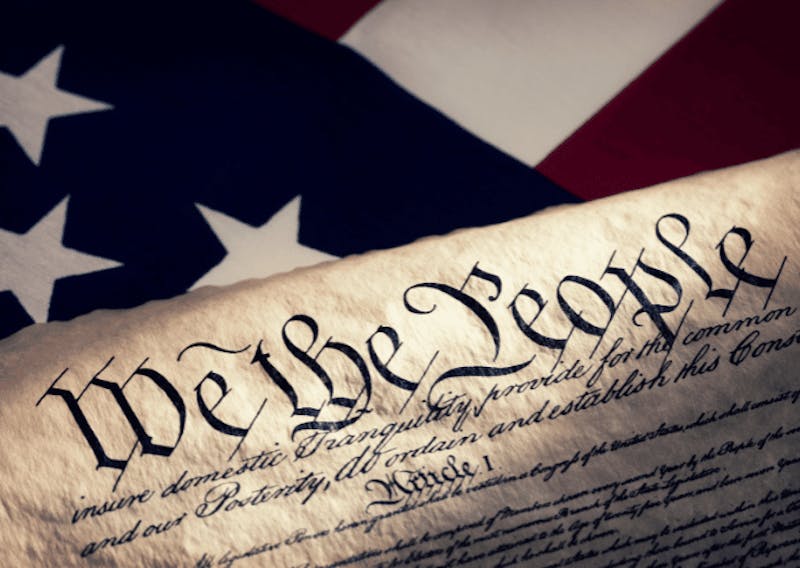
Evidence obtained through an unreasonable search and seizure violates the Fourth Amendment of the U.S. Constitution and is typically inadmissible in court. The good faith exception undermines this protection by allowing such evidence to be used if the court determines police conduct was reasonable. The O’Mara Law Group supports the constitutional rights of defendants and opposes this exception.
The federal courts, including the U.S. Supreme Court, have established that the exclusionary rule, which suppresses illegally-obtained evidence, exists to deter police from willful Fourth Amendment violations. However, if a judge concludes that excluding evidence serves no deterrent purpose, the good faith exception may be applied.
O’Mara Law Group is a vehement supporter of the Fourth Amendment and the exclusionary rule. You can count on our law firm and its experienced civil rights attorneys to take a stand in favor of the suppression of evidence obtained through an illegal search and seizure, regardless of the supposed intentions of the officer.
What is a good faith violation?
Law enforcement is presumed to have been acting in good faith when it can be shown that they obtained evidence while acting with a reasonable belief that they were authorized to stop, search, or arrest an individual. If the belief is later determined to be mistaken, the action is classified as a good faith violation.
Examples of good faith violations include the following:
- A clerical or database error
- Actions taken based on an interpretation of the law that is later changed by the court
- Reasonable reliance on a search warrant
What are the Penalties for Violating a Child Custody Order?
Below are examples of court cases involving the exclusionary rule and the good faith exception.
Wong Sun v. United States
An unsigned statement by a defendant following an illegal arrest was allowed into evidence by the court because the defendant came back voluntarily to provide it while released on his own recognizance seven days after the arraignment.
Segura v. United States
Evidence obtained during an illegal entry was admitted because police obtained the same evidence the next day with a valid search warrant that had been issued based on information the police had obtained prior to the search.
Utah v. Strieff
Evidence obtained during an illegal stop was admitted because an arrest warrant for the defendant pre-existed the incident. In rendering its decision, the court commented that suppression of evidence should be a last resort rather than a first impulse.
While we respect the court’s decision, O’Mara Law Group’s interpretation of the U.S. Constitution is that the rights of the accused are paramount, and if the court must err, it should err on the side of the defendant, not the prosecution.
Is there a defense against the good faith exception?
The good faith exception is applicable only in limited circumstances. It is not the rule, but an exception, making it rare by definition.
Prosecutorial Misconduct
Any form of police misconduct in the acquisition or execution of a warrant would negate the good faith rule. For example, if a search warrant is obtained using deception, misconduct, or partiality, the good faith rule does not apply, even if the officer executing the search warrant is unaware of the misconduct.
Failure by police or the prosecution to follow established police and prosecutorial procedures also constitutes misconduct, whether the dereliction is intentional or negligent. The good faith rules would not hold up in these cases.
Lack of Probable Cause
Police cannot stop you, detain you, or search you without either a warrant or probable cause. Probable cause is defined as a reasonable suspicion that a crime is occurring. If a reasonable officer would not have suspected that a crime was in progress, there are no grounds for the good faith exception to apply.
Probable cause is also required before law enforcement can issue a warrant for a search or make an arrest. If a police officer unreasonably relies on a search warrant with an obvious flaw or lack of probable cause, a reasonable officer would choose not to execute it. Since it would be unreasonable to execute the warrant, the good faith exception would not apply.
How can I protect myself from Fourth Amendment violations by police?
The short answer is that you cannot always prevent a Fourth Amendment violation from occurring. Illegal searches and seizures can happen to anyone, and persons of color are even more vulnerable. The U.S. Constitution is the foundation of any legal defense, and our attorneys fight vigorously to defend it.
You can protect yourself by knowing what to do in these situations. For example, if a police officer wants to search your car, at the very least, you should always have your driver’s license, registration, and insurance information easily accessible.
If you decide to record the officer, do so openly and avoid making sudden movements or being aggressive while recording.
If you have been arrested for a crime stemming from an illegal search or seizure, O’Mara Law Group will stand by you to enforce the exclusionary rule. Contact us today for a free consultation with a criminal defense lawyer.

